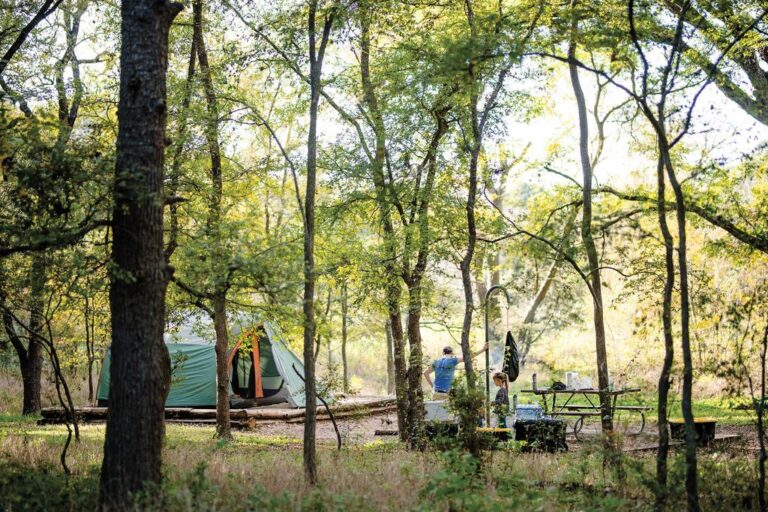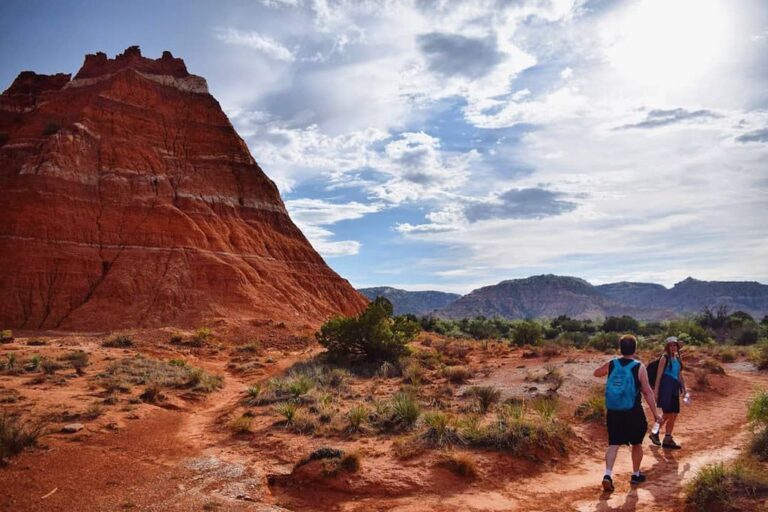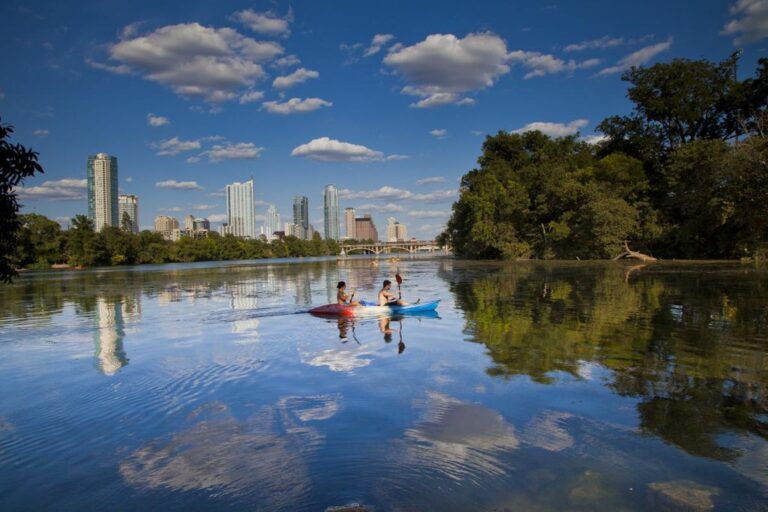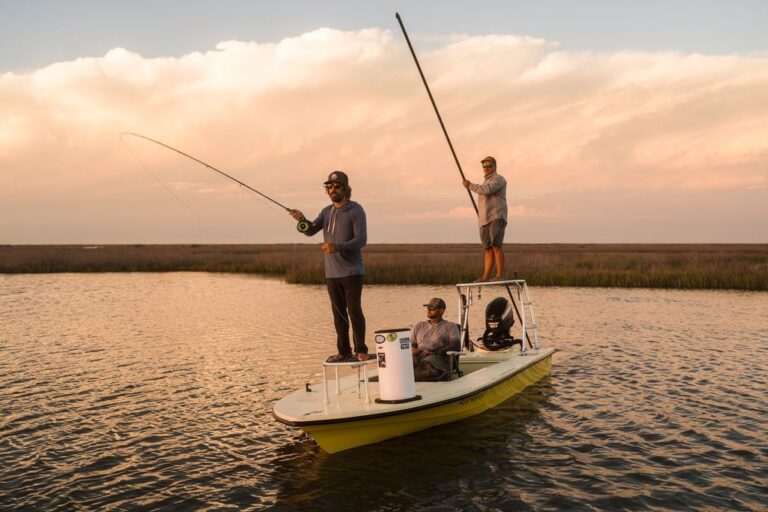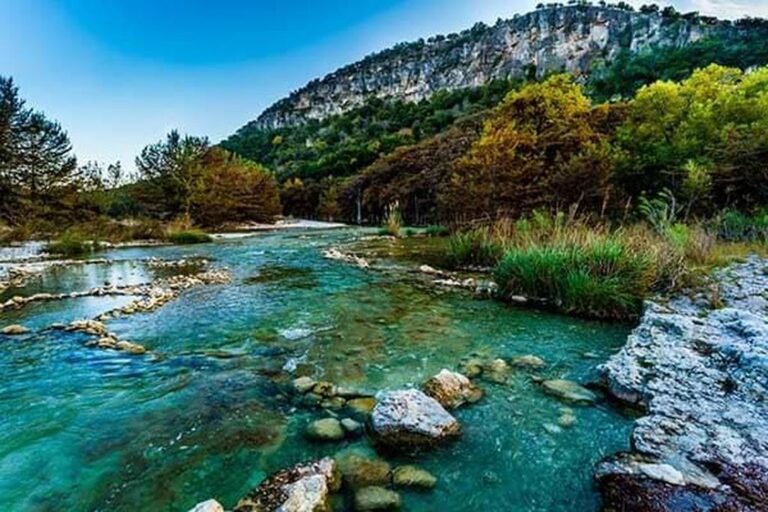Hidden Gems of West Texas: Remote Towns, Landscapes, and Attractions
West Texas is a region of untamed beauty and cultural richness, stretching across vast desert plains, towering mountain ranges, and historic small towns. It’s an area where the echoes of the past meet the silence of the present, offering visitors a chance to escape the bustle of everyday life and immerse themselves in a world of natural wonders and hidden treasures. Despite being overshadowed by the state’s larger cities and famous attractions, West Texas holds some of the most fascinating and underappreciated destinations in the Lone Star State. This comprehensive guide will introduce you to the remote towns, stunning landscapes, and unique attractions that make West Texas a traveler’s dream.
Why West Texas Deserves a Spot on Your Travel List
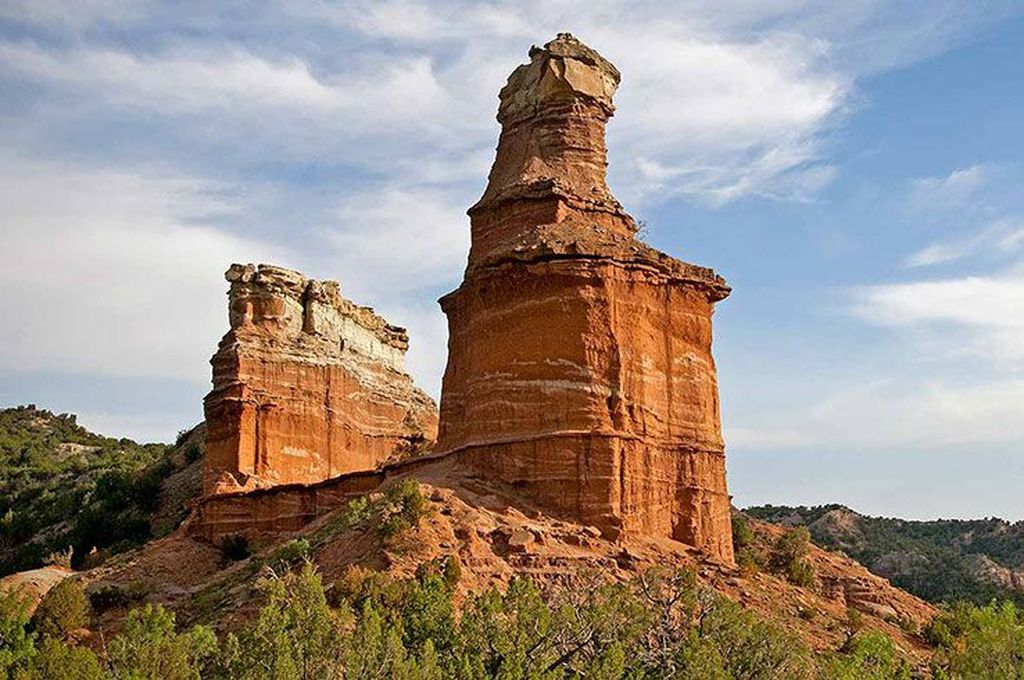
West Texas offers a unique experience that combines solitude, adventure, and discovery. Here’s why it should be at the top of your travel bucket list:
- Untouched Beauty: Vast, open spaces with minimal development provide a rare opportunity to experience nature in its rawest form.
- Cultural Richness: From Native American heritage to frontier history and contemporary art, West Texas has a diverse cultural tapestry.
- Adventure Opportunities: With some of the most rugged and remote terrain in the U.S., the region is perfect for hiking, stargazing, and exploring.
- Quiet Escape: The remote towns and expansive landscapes offer unparalleled tranquility, making it a perfect destination to recharge.
Remote Towns of West Texas: Hidden Havens of History and Culture
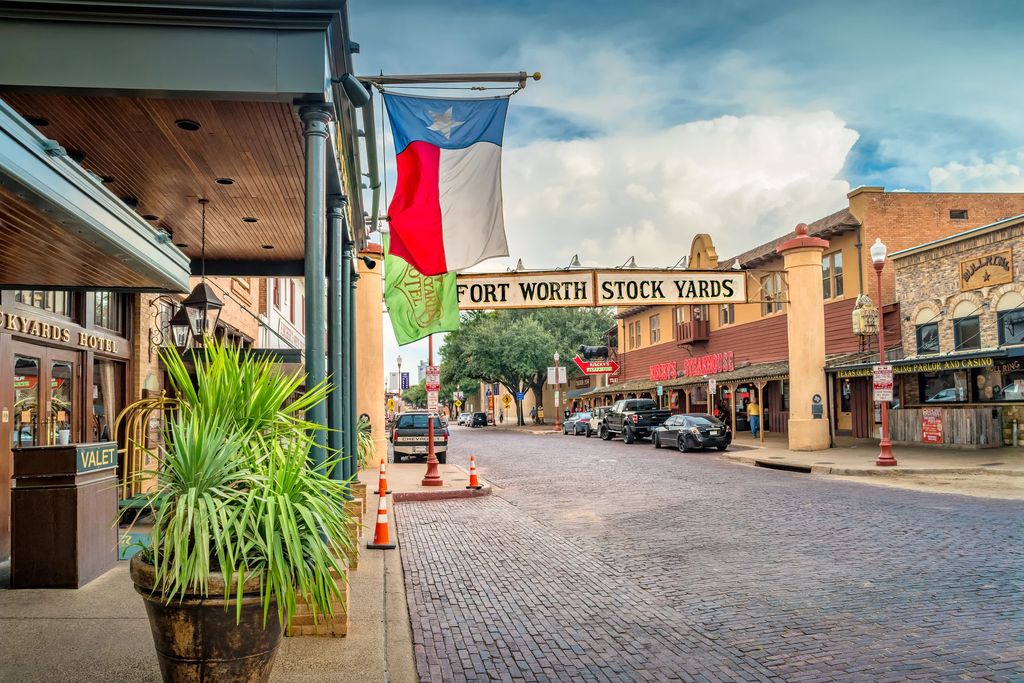
1. Marfa: Where Art and Mystery Collide
Marfa is a small town with a global reputation, blending modern art with an air of mystery. Originally a railroad stop, it gained fame in the mid-20th century as a hub for minimalist art, thanks to artist Donald Judd. Today, Marfa attracts art enthusiasts, adventurers, and those curious about its enigmatic attractions.
- The Marfa Lights: A mysterious phenomenon, these floating orbs have been spotted in the desert for decades. Scientists and enthusiasts continue to speculate about their origin, but their allure remains undeniable.
- Prada Marfa: This quirky art installation, designed to mimic a high-end fashion store, is a must-see and perfect for a unique photo opportunity.
- Art Galleries: The town is home to numerous galleries, including the Chinati Foundation, which showcases large-scale installations integrated with the surrounding desert landscape.
2. Terlingua: A Ghost Town with Vibrant Energy
Once a booming mining community, Terlingua is now a fascinating mix of history and modern-day charm. Known as the gateway to Big Bend National Park, it attracts adventurers, history buffs, and artists.
- Ghost Town Ruins: Explore the remnants of old mining operations, including the famous Terlingua Cemetery, which offers a hauntingly beautiful glimpse into the past.
- The Starlight Theatre: This iconic restaurant and live music venue combines great food with a lively atmosphere, making it a perfect stop after a day of exploration.
- Adventure Base: Its proximity to Big Bend National Park and Big Bend Ranch State Park makes Terlingua a popular base for outdoor activities.
3. Fort Davis: A Step Back in Time
Nestled in the Davis Mountains, Fort Davis is a historic gem that also offers stunning natural beauty. Its cooler climate and high elevation make it a popular destination year-round.
- Fort Davis National Historic Site: Walk through history at this well-preserved military post that once protected settlers and travelers during the 19th century.
- McDonald Observatory: Located nearby, this observatory offers some of the best stargazing opportunities in the world. Don’t miss their star parties and educational programs.
- Davis Mountains State Park: Enjoy hiking, camping, and birdwatching in one of Texas’s most scenic and serene state parks.
4. Alpine: The Cultural Hub of West Texas
Alpine serves as the cultural heart of the region, offering a mix of historic charm and modern amenities. Surrounded by mountains, it’s a hub for art, music, and local events.
- Museum of the Big Bend: Learn about the natural and cultural history of the Big Bend region through engaging exhibits.
- Kokernot Field: A historic baseball stadium that’s a must-visit for sports fans.
- Annual Events: From art walks to music festivals, Alpine hosts several events that celebrate the region’s creative spirit.
5. Marathon: Gateway to Big Bend
Small but captivating, Marathon is a serene escape known for its hospitality and proximity to Big Bend National Park.
- The Gage Hotel: This historic hotel is a destination in itself, offering luxurious accommodations with a rustic touch.
- Art and Local Shops: Stroll through the town’s small galleries and boutique stores, showcasing the work of local artisans.
- Peaceful Ambiance: With its quiet streets and friendly locals, Marathon is a perfect place to unwind.
Natural Wonders of West Texas: A Landscape Like No Other
1. Big Bend National Park
Spanning over 800,000 acres, Big Bend is one of the most diverse and stunning national parks in the country.
- Santa Elena Canyon: A dramatic canyon carved by the Rio Grande, perfect for hiking or kayaking.
- Chisos Basin: Explore this mountain oasis with cooler temperatures, lush vegetation, and abundant wildlife.
- Hot Springs: Soak in natural hot springs while enjoying the views of the Rio Grande.
2. Guadalupe Mountains National Park
Home to the highest peak in Texas, this park offers rugged beauty and unforgettable hiking experiences.
- Guadalupe Peak Trail: A challenging hike that rewards adventurers with panoramic views from Texas’s tallest mountain.
- McKittrick Canyon: Famous for its stunning fall foliage, it’s a great destination for year-round exploration.
- Salt Basin Dunes: Explore this unique area of white gypsum dunes, a stark contrast to the surrounding desert.
3. Monahans Sandhills State Park
This park offers a surreal desert experience with endless rolling sand dunes.
- Sandboarding: Rent a board and glide down the dunes for a thrilling activity.
- Wildlife Watching: Spot unique desert species in their natural habitat.
4. Davis Mountains
Known as the “Alps of Texas,” these mountains provide a cooler climate and lush landscapes.
- Scenic Drives: Take a drive through the Davis Mountains Scenic Loop for breathtaking views.
- Hiking Trails: Explore trails that offer a mix of challenging climbs and leisurely walks.
5. Balmorhea State Park
A desert oasis, Balmorhea features one of the largest spring-fed swimming pools in the world.
- Swimming and Snorkeling: Crystal-clear waters make it a favorite spot for relaxation and recreation.
- Wildlife Habitat: The springs also support a rich variety of aquatic life.
Best Times to Visit West Texas
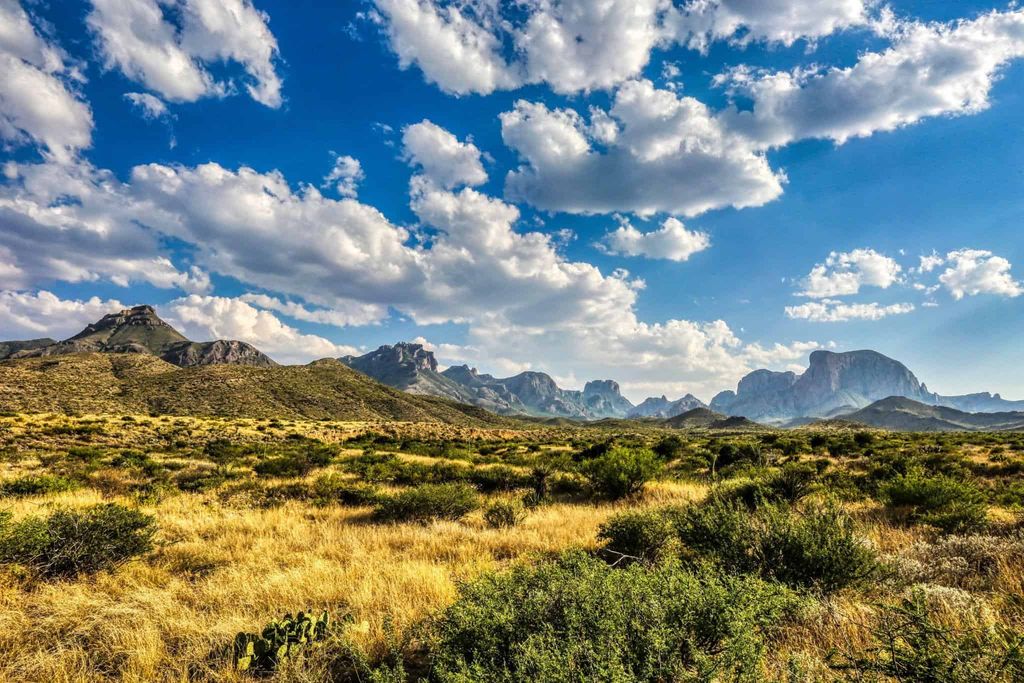
The best seasons to visit West Texas are spring and fall, when temperatures are milder, making outdoor exploration more enjoyable. Summers can be intensely hot, while winters, particularly in higher elevations, can bring chilly nights. Always check the weather and plan accordingly to make the most of your trip.
Tips for Exploring West Texas
- Prepare for Long Drives: Distances between towns and attractions can be vast, so plan your routes and fuel stops in advance.
- Stay Hydrated: The dry climate can be dehydrating, so carry plenty of water.
- Respect Nature: Follow Leave No Trace principles to preserve the natural beauty of the region.
- Dress Appropriately: Layer your clothing to accommodate temperature fluctuations between day and night
Conclusion
West Texas is a land of hidden gems waiting to be discovered. From the mysterious lights of Marfa to the towering peaks of the Guadalupe Mountains, this region offers a diverse array of experiences for every traveler. Whether you’re seeking adventure, history, or simply a peaceful escape, the remote towns, breathtaking landscapes, and unique attractions of West Texas promise an unforgettable journey. Step off the beaten path and immerse yourself in the untamed beauty and charm of this remarkable region.
Q&A: Hidden Gems of West Texas
Q: What makes West Texas a unique travel destination?
A: West Texas offers a mix of untouched natural beauty, rich cultural history, and remote small-town charm. Its vast landscapes, like Big Bend National Park and the Guadalupe Mountains, provide opportunities for adventure, while towns like Marfa and Terlingua blend art, history, and quirky local culture.
Q: What are some must-visit towns in West Texas?
A: Key towns include:
- Marfa: Famous for the mysterious Marfa Lights and its thriving art scene.
- Terlingua: A ghost town turned lively community near Big Bend.
- Alpine: Known for its art galleries, historic architecture, and music festivals.
- Fort Davis: Home to the Fort Davis National Historic Site and the McDonald Observatory.
- Marathon: A quiet gateway to Big Bend National Park.
Q: What are the best natural attractions in West Texas?
A: West Texas is full of stunning landscapes, including:
- Big Bend National Park: Hike canyons, soak in hot springs, and explore the Chisos Mountains.
- Guadalupe Mountains National Park: Home to Texas’s highest peak and incredible hiking trails.
- Monahans Sandhills State Park: Perfect for sandboarding and exploring rolling dunes.
- Balmorhea State Park: A refreshing desert oasis with a spring-fed pool.
Q: When is the best time to visit West Texas?
A: The best times are spring (March–May) and fall (September–November) when temperatures are mild. Summers can be very hot, while winters, especially in higher elevations, can bring cold nights.
Q: What should travelers know before visiting West Texas?
A:
- Plan for long distances: Attractions and towns are spread out, so prepare for extended drives.
- Pack essentials: Bring plenty of water, snacks, and fuel as amenities can be sparse.
- Dress for variable weather: Days can be hot, but nights may be cool, especially in desert or mountain areas.
- Respect the environment: Follow Leave No Trace principles to help preserve the natural beauty of the region.
Q: What’s a must-see for stargazing in West Texas?
A: The McDonald Observatory in Fort Davis offers one of the darkest night skies in North America. Attend their star parties or tours for an unforgettable stargazing experience.


